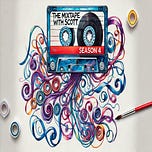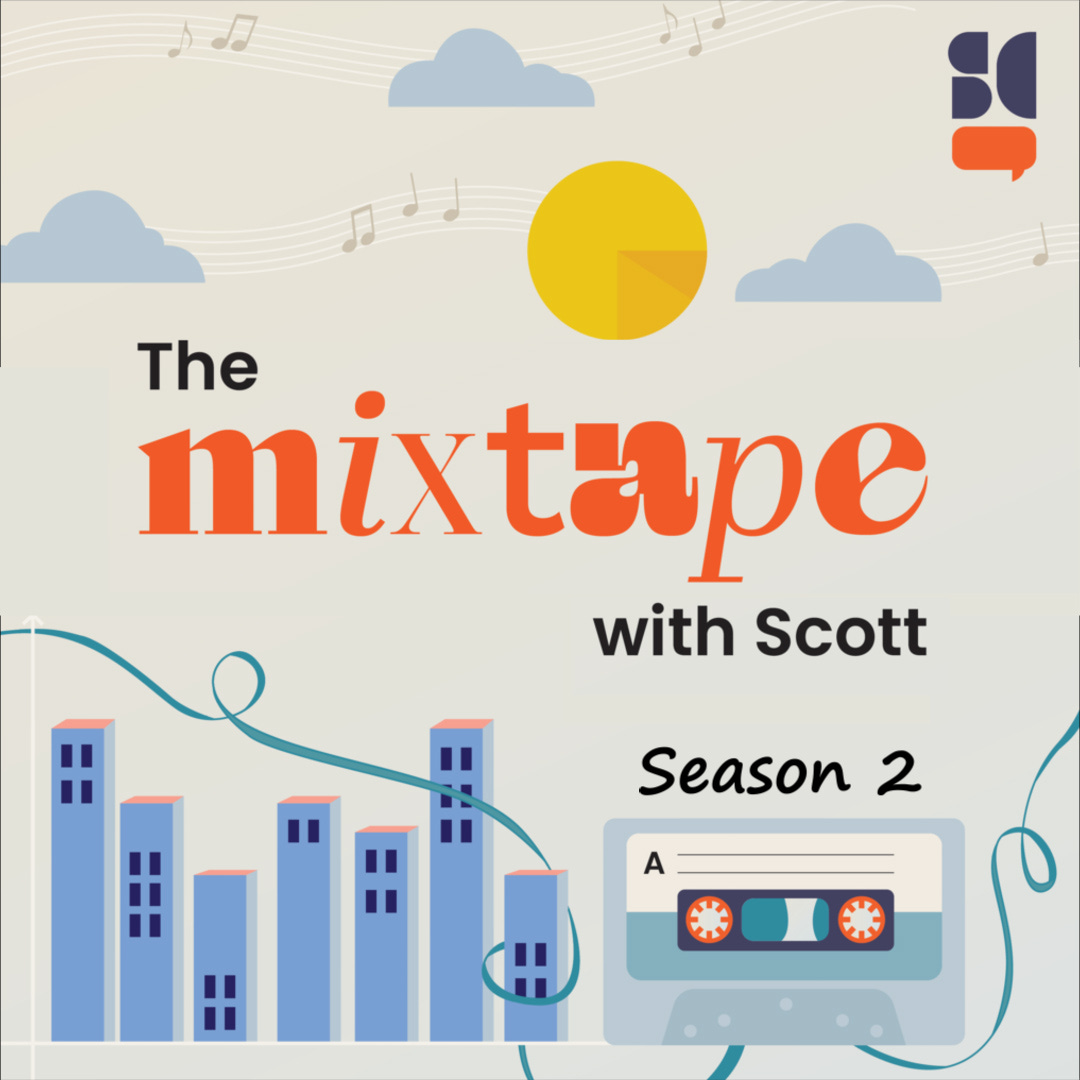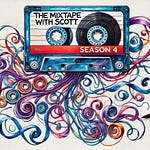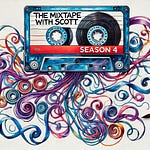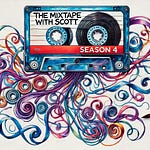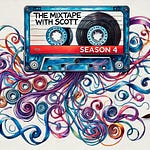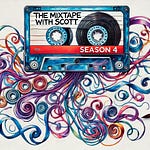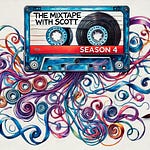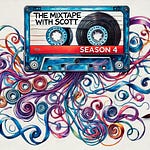Update before introducing the podcast episode.
Things have been light on the substack and I apologize for that. I spent two weeks traveling, seeing the country with my two high school aged daughters on a road trip from Waco, to Big Bend, to Marfa Texas, to the Grand Canyon. There at the Grand Canyon, I realized I was old and tired and it was hot and the girls gave it their best shot but sadly, they weren’t being blown away by the scenery, so we decided to then pull the plug a day early and go to Las Vegas. The Vegas trip was always meant to just be a way for me to find an airport for me to fly my youngest back to Waco in time for her camp, but then it turned into three days and two nights on the Strip where I learned you can pay $100 for a hamburger, two cheese steaks, a coke and two water bottles. At which point I told the girls we are going to try a new trick called “intermittent fasting” where none of us eats for the next 48 hours. Psyche! They ate but I did wish I could’ve lugged the Coleman stove and dehydrated beans up from the car at a few points as I had no idea Vegas was that expensive. We did Cirque de Soleil (we saw O which was beautiful).
To be honest, the girls hadn’t really ever been out of Texas. I mean they had been on vacations but we usually vacation in Texas — the Hill Country is our special spot, on the rivers. But my heart is for the open road — ever since I read On the Road by Jack Kerouac when I was 16, everything changed for me. I developed a habit of stream of consciousness writing, which I perfected as the years went by on social media, but which made writing the carefully disciplined academic articles much more difficult. And I fell in love with America, and seeing America from behind a steering wheel. And getting to share that with my girls meant the world to me. They’ve beautiful young ladies, 11th and 12th grade, and they wore outfits and we did a lot of pictures in front of the choreographed water fountains, we saw the new massive LED dome, and then the next morning, my daughter flew back, and me and my oldest daughter drove straight to San Francisco, which had always been the destiny. San Francisco. My favorite city in the United States, and one of my favorite in the world. I’d found us a really nice airbnb in the Mission District. My daughter really had no idea what was waiting for her, but I knew that if I could just get us there, and if we could just walk the streets together, moving between neighborhoods and commercial areas, that it would affect her. And it did. She was like me deeply moved by the beauty of the city. Another book that had a major impact on my development was Jane Jacobs’ The Death and Life of Great American Cities, and all I really wanted was my daughter to feel a great American city with her feet and eyes, moving down the streets, navigating the BART. I gave her the job of getting us everywhere we needed to go so that she could master the public transportation system; I sensed that that was all that she needed to really feel her self esteem lift. Navigating public transportation involves going to depots, putting money on a card, going through turn styles, watching the people, getting on the train, reading maps, sit in a seat as a train moves through the dark — all experiences someone who has never had has conjured up feelings that really are new. And we don’t have that in Waco. I doubt my daughter have ever taken a bus in Waco, as Texas is an automobile centered place.
So she did, and it was empowering just like I thought it would be. She said all she wanted to do was go to thrift stores, so we did. We went to Haight and for an entire day, all we did was go from thrift and vintage stores, one after another. I got some great Sam Smith Adidas for only $10. Couldn’t believe they fit. And I got a bunch of other things that looked great until I brought them home and then they didn’t, but she found the most beautiful sweater and pants. And I saw my daughter as this young woman and just thought how fortunate I am to be here with her. And so we had four days and three nights there. We even did touristy things — took a ferry to the Golden Gate Bridge and to Alcatraz where I didn’t wear a hat and so my bald head turned red as a beet.
But then we drove back. I really did not have a plan for the return trip at all. I had a plan to get there, but not so much to get back. So I decided — okay, where have I never been? And I’d never really been to the northern part of Nevada, or Utah, or even much of Colorado. So that’s what we did. We drove Northern Nevada, through Reno, and then to Utah. I don’t know what I was expecting Utah to be like. Growing up in Mississippi and Tennessee, our lives were either in those states or on vacation to Florida. The middle part of the country, anywhere where there were mountains— I’d never seen. I’d seen the Smoky mountains in college, because I went to UT-Knoxville, but I’d never seen the mountains of the rest of the country. And so as a kid, I just thought Utah, Idaho and Iowa were probably all basically the same state. I thought maybe they were all just the scenery from Hoosiers, or possibly they looked like what I imagined Notre Dame looked like from watching Rudy. I had absolutely no idea that the country up there was like that as I’d never gone. So when I drove through Salt Lake City with her, and I saw the mountains towering over the city, it was just stunning. And it remained stunning — we drove for days, through Utah, down through Colorado, through this thick never-ending national park. I was listening to The Name of the Rose by Umberto Eco, and we were just talking and looking at things that we’d never seen before. I saw things in that national park that I didn’t even know could look that way. I didn’t know we’d cut roads through mountains that way, or that there were roads overlooking valleys like that — endless roads through endless mountains through endless valleys, all covered with endless trees, forests laid out like a blanket over the mountain.
They’re getting older. Next year, my oldest will graduate. Then the year after, my youngest will graduate. I’ve begun transitioning my life into a level of building into the next phase of my career. Writing, the workshops, more ambitious research projects that seem to take forever, consulting. I’ve gotten off social media, because it is such a negative place for me mentally. I suspect that things that happened on social media both last year but even really in the years leading up to it, left some scars. I noticed as much when recently I had something like a “flashback” when a new paper about online harassment of economists came out. I carry inside my body this feeling like the top layer of my skin is somehow slightly pulled away from the bone. It’s hard to explain. I’m going to see someone about it hopefully in the next couple of weeks. Decided I wanted to kick the tires, see what’s going on. Maybe try to get a better handle on why I am having a little trouble moving on, or why some things really get to me that to others looking in don’t make a lot of sense. I wish I was on the other side of my story where I’m a wise old man who says many wise things and floats along the ground, his feet never touching, having evolved. But I’m instead a man with his feet firmly on the ground, sometimes feeling planted into the ground, stuck. I make progress, and think it’s all done, all in the past, but then an event happens, and I wake up and think where am I? What happened? Am I really back at square one again?
So, that’s why things have been quiet on here. I had some things I was going to write, papers I was hoping to read closely and write up, but I just have been slow to really feel confident I understand why the papers had been written. There is a guy at Brandeis name Tymon Sloczynski, a young econometrician, whose work I have grown to admire immensely. It’s full of insights, and it’s probably things he’s written that forced me to start looking more closely at covariates in regressions. He’s got an Restat where he shows that the regression model with additive covariates ends up putting weights on groups that are more or less the opposite of what you’d think it would do — weighting up the smallest groups in the data, and weighting down the largest ones, causing the OLS estimates of aggregate causal parameters in certain specifications to not be as easily interpretable. I just was struck by how much I don’t understand about OLS, and so I was hoping to do a series through several of his papers because I really think Tymon is an amazing writer and thinker.
Podcast
So, with that all out of the way, I’d like to introduce you to this week’s podcast guest, Jonathan Meer, a professor at Texas A&M in the economics department. Waco Texas is they say “centrally located”. They say that because you can get to Dallas in 100 minutes, Austin in 90 minutes and College Station in 90 minutes. And if you’re willing to go a little further, Houston isn’t much further. It’s not pretty driving the way driving through Northern Nevada or Utah is, unfortunately, but waiting for you when you get there is Jonathan Meer, one of the funniest and thought provoking friends in my community of economist-friends. So there’s always consumer surplus associated with making the drive.
I reached out to Jonathan because Jonathan isn’t really one of the “applied microeconomists” crowd that popped up at some point over the last couple of decades as much as he is a traditional microeconomist. The applied microeconomists were people like me who sort of took Becker as their inspiration to look at all of human behavior through an economic lens on the one hand, and then took Angrist and the credibility revolution to be the tools through which they’d do it. Meer was different. Meer was what I sometimes call on here “real economist” because he studied classic topics in labor and public finance, as well as ventured out on his own into areas around charitable giving. He moved between quasi-experimental and experimental work, but his overall grasp of economic theory was deep. He is considered one of the best instructors at all at A&M from what I can gather (I think the long name he has on his title is associated with his teaching skills). He teaches one of those massive micro economics classes with more students enrolled than populated some of the towns I drove through in Colorado. And he, from what I can gather, when he holds court, they all are on the edge of their seat, loving the lessons.
Meer knew what he wanted to be from a young age — an economist. He wasn’t one of these Johnny-come-lately types, like me, who learned about economics super late. He learned about economics early, way earlier in fact than anyone I spoke to so far. He went to Princeton then Stanford. If you get to know him, he’s basically the classic “work hard play hard” guy. He loves people, and is constantly having big parties at his house in College Station where he invites people from diverse walks of life to come and watch him make these ridiculous cocktails and tell jokes. He reminds me of characters from Walker Percy novels. I have grown to appreciate our friendship as the years have passed. And I was grateful to have this chance to talk to him and hear more of his story. I hope you find it interesting too.
Thanks as always for tuning in. Thanks for supporting this effort to run a podcast of personal stories aggregating into an oral history of the profession. All stories matter. Each of our stories matter. Your story matters. It is important that we believe that and not cheapen the experience of others by forcing their realities into our two dimensional caricatures of who they are or what this life is about. I do these podcasts to remember that people are good and valuable, not as a means to an end, but as an end in itself. And I do them as part of my own effort to remain whole and sane and get better and just not let go of the thread of yarn that links me back to thing I hold dear — economics. So sit back and enjoy this interview with Jonathan!


